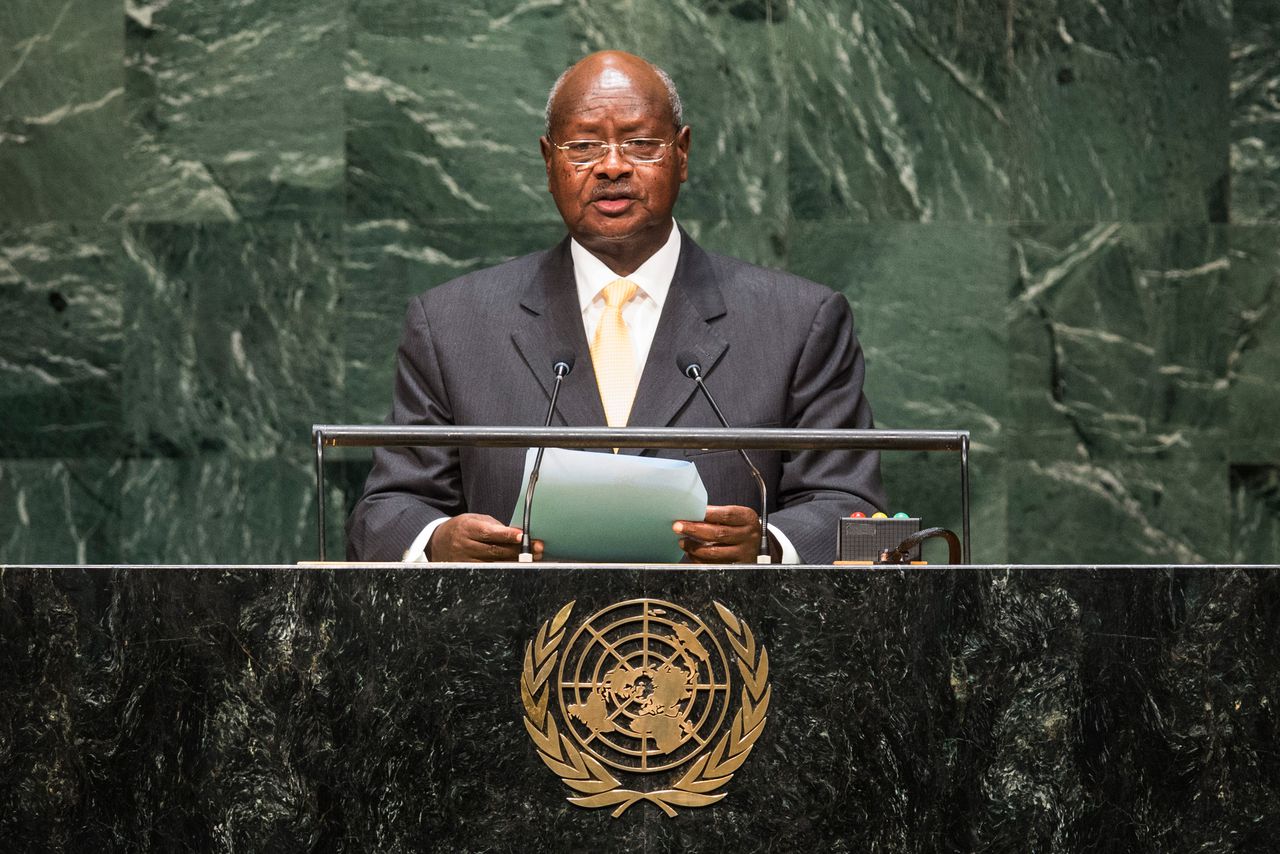By Amar Toor

(Andrew Burton/Getty Images)
The government of Uganda used sophisticated surveillance technology to
target opposition members, journalists, and activists, according to an investigation from the London-based watchdog Privacy International. The report,
based on secret government documents, shows how Ugandan President
Yoweri Museveni personally spearheaded a campaign to spy on, and
ultimately vanquish opposition movements following the 2011 presidential
election. The investigation was conducted in coordination with the BBC,
and also claims that the Ugandan government is close to purchasing a
new communications monitoring center ahead of next year's presidential
election.
The government's weapon of choice was a highly invasive form of spyware
called FinFisher, produced by Gamma Group International, a UK-based
company with affiliates in various other countries. As The Verge has previously reported,
FinFisher is capable of remotely monitoring computers, smartphones, and
other equipment in real-time, and has been sold on the open market to
repressive governments.
"the surveillance industry will sell to just about anyone."
The Ugandan government purchased FinFisher in 2012, documents show, after Museveni launched Operation Fungua Macho ("open your eyes"). The initiative involved 70 intelligence officials, and was launched in response to widespread political unrest that erupted over alleged corruption, police brutality, and high living costs following the 2011 election. More than 600 people were arrested or detained, including members of parliament.
FinFisher was the "backbone" of the operation, Privacy International
reports, which aimed to blackmail opposition members and "crush... civil
disobedience." FinFisher "access points" were installed in Uganda's
parliament and other government institutions, and Museveni's opponents
were targeted in their homes, as well. Gamma trained four Ugandan
officials on how to use FinFisher in late 2011, after a second wave of
protests erupted.
"The documents say that the surveillance industry will sell to just
about anyone," Gus Hosein, executive director of Privacy International,
tells the BBC. "And it is proof of the fact that we have been trying to
raise all along — that these technologies are far too powerful to be in
the hands of governments and that governments will go ahead and abuse
them."
Cause for concern ahead of next year's elections
In a letter to Privacy International, a government spokesperson denied that the surveillance program exists. "President Museveni does not use criminal blackmail as a political tool to win over or deal with opponents," the spokesperson said, "it does not add any value as (the) government enjoys broad political legitimacy and support." Government spokesman Colonel Shaban Bantariza tells the BBC that there is "no evidence" that any opponents have been monitored.
In a statement to the BBC, Gamma said its products are designed to combat "terrorist threats, drug cartels, other major organized crime, and pedophile rings." "Gamma undertakes an absolute obligation of confidentiality to the governments which purchase its products and systems," the company said. "Gamma does not assist or encourage any government agency in the misuse of Gamma's products and systems."







0 comments:
Post a Comment